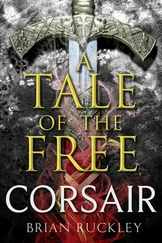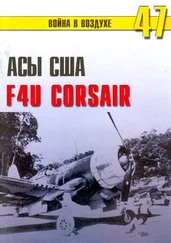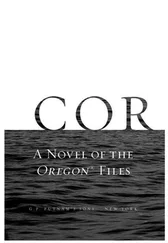‘What about meeting another ship, is there a chance that someone might rescue us?’
‘I’d expect we’ll sight other ships all right, but whether we’ll be rescued is another matter. For one thing, there’s our companion over there.’ Dunton nodded towards the corsair’s sister ship still visible half a mile away. ‘Two ships sailing in close company are best avoided in case they’re hostile. They can gang up on a stranger. And should we get separated and must sail on our own, then who’s to say that this is a corsair ship. If the crew take the trouble to cover those few guns, this vessel could as easy be a merchantman as a pirate. Pull down those pennants and that green flag and run up someone else’s colours and she could be Dutch or French or a Brandenburger as much as Turk. That’s why ships avoid one another when they meet at sea, just in case of trouble.’

THE FOLLOWING AFTERNOON almost proved Dunton wrong. The captives were on deck taking their exercise when a distant sail was sighted from the masthead. Hector noticed Hakim Reis gazing intently in the direction of the approaching vessel before the prisoners were hustled back down into the hold and shut in. Dunton stayed on the lower rungs of the ladder, his head cocked to one side, listening. There was a squeal of ropes running through the wooden blocks. ‘Hullo, they’re bringing the topsails amain,’ he commented. Soon afterwards there was a tramp of feet heading towards the stern. ‘And there they go to peak the mizzen. They’re heaving to.’
‘What does that mean?’ asked Hector in a whisper.
‘They’re stopping the ship, waiting for the other one to catch up,’ Dunton explained as Hector felt the motion of the vessel change. Where before the ship had been sailing at a slant, now she was level and pitching up and down gently on the waves.
Dunton sat down against the side of the hold. ‘No hurry, younker,’ he said. ‘It’ll be some time before that other sail catches up with us, three or four hours at least.’
‘Who do you think it is?’
‘No idea,’ answered the sailor. ‘But my guess is that our captain is a foxy one. He’ll pretend he is a friendly vessel, hang out some convenient flag, and wait for the visitor to come close enough, then close and board him. Take him by surprise.’
‘Not fire at him?’
‘A corsair doesn’t use his cannon except in emergency. He doesn’t want to damage his prey. Best lay board and board, and seize the other vessel with a rush of men.’
An air of excitement had also brought the other prisoners to life. Even the most depressed villager started to look hopeful of rescue. Newland, the cloth merchant, called enquiringly, ‘Friend or foe, sailor?’
Dunton merely shrugged.
It must have been about three hours later – there was no way to mark the passage of time below deck – when suddenly an order was shouted on the deck above, and the prisoners heard the scamper of running feet. ‘Hello,’ said Dunton. ‘Something’s not what was expected.’
There were more shouts and then the chanting of a work song, its refrain urgent and forceful. ‘They’re setting sail again, and in a hurry,’ commented the sailor. Within moments the prisoners could again hear the ripple of the waves along the flanks of the ship, and feel the vessel heel to the wind. A flat thud in the distance was followed by two more. ‘Cannon!’ announced Dunton. More cries on deck, and the answering bang of a cannon from directly above them. The vessel quivered with the recoil. ‘God grant that we are not hit. If we sink, we’ll never get out of here alive,’ muttered Newland the mercer in sudden alarm. Hector glanced at the villagers. Their earlier hopes of being rescued had turned to dismay. Several were on their knees, hands clasped in silent prayer, eyes shut tight. ‘What’s going on?’ he asked the Devon sailor. Dunton was still straining to hear the noises on deck. ‘Wish I knew their language. No way of knowing. But my guess is that we’re the chase.’ Again Hector felt frustrated by his lack of sea lore.
‘Does that mean we are in pursuit?’
‘No, the chase is the vessel which is pursued.’
‘God grant us salvation!’ pleaded the cooper. ‘Praise the Lord for his Mercy. He who watches over us! Let us pray together for our liberation.’ He began to hum a psalm.
‘Shut up!’ snapped Dunton. ‘I’m trying to hear what is going on.’
The cooper ignored him, and his co-religionists in the hold began a dirge which drowned out all but the distant occasional thud of the cannon fire which, as time passed, became fainter and more irregular until, finally, nothing more could be heard.
‘Must have outrun them,’ grunted Dunton, who had shifted to his favourite position beneath a crack in the deck planking where he could squint out at the sky. ‘Or perhaps we lost them in the gathering darkness. It’ll be full dark soon.’
The disappointed prisoners settled down for their rest, their stomachs empty, because for the first time in the voyage, no one had appeared at the hatch with their evening ration. ‘Let us pray to God that our women and children are safe,’ said the cooper, and Hector, who had naturally been silently wondering what might have happened to Elizabeth on the sister ship, found himself praying quietly for her survival as he tried to go to sleep, curled up against a bulkhead. He felt completely helpless as Hakim Reis’s ship sailed on towards its unknown destination.

BY NOON the next day the captives had still not been fed, and they were hungrily awaiting the arrival of their usual ration of bread and olives when there was another shattering crash of cannon fire. But this time it was not a single cannon. An entire battery of guns was shooting, and very close by. The ship’s armament promptly answered, and the prisoners heard the thud of the gun carriages slamming down with the discharge. The sudden torrent of sound tipped the elderly madman over the edge of sanity. He leapt up from where he had been sleeping, and began to caper and shout nonsense. He hooted and bellowed, and nothing could restrain him. Again came the shocking crash of a battery, and an answering blast from the ship’s guns. A strange smell wafted down – the acrid stink of gunpowder.
All at once the hatch was flung open, and not one but five sailors came hurrying down the ladder. But instead of bringing food, they began to shout and point excitedly, urging the captives to go up on deck. Dazed and uncomprehending, the prisoners shuffled forward. Those who stayed were pulled to their feet and thrust forward. Hector found himself following the grimy and naked feet of a villager as he climbed the ladder to the deck, and emerged to see a scene ahead of him never to be forgotten.
Off to one side, less than a hundred yards away, stood a formidable fortress constructed of massive stone blocks on a low and rocky islet. The sides of the fortress were a series of angled surfaces designed to deflect cannonballs. Its parapet bristled with cannon, and from a copper dome, which also served as a lighthouse, rose a tall flagpole from which floated a huge crimson flag. In the centre of the flag was the image of an arm, black on red, brandishing a broad-bladed sword like the weapons wielded by the sailors aboard Hakim Reis’s vessel. As Hector watched, white smoke belched from the mouths of the fort’s cannon, and a moment later he heard the echoing explosion. He flinched, waiting for the shock of cannonballs tearing into the fabric of the ship. But nothing came. Then he realised that the fort was firing a salute to greet the incoming vessel, even as Hakim Reis’s men let off their own guns and gave a great cheer.
Читать дальше









